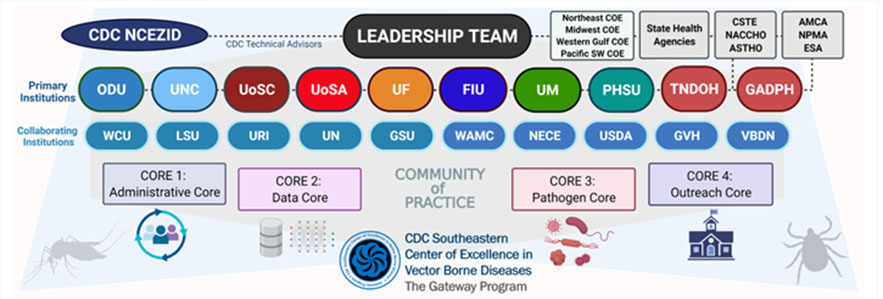Amblyomma americanum (Lone Star Tick, LST) is an aggressive tick across the SE, and controlling LST populations and preventing tick- human interactions remains a challenge throughout the region. Tickborne Infections (TBIs) have been reported historically in the SE; however, the rates of confirmed human cases for TBIs caused by Ehrlichia and Rickettsia species in this region have remained low, rather than intensifying dramatically with the expansion of endemic tick vector populations and an increased occurrence of human-tick encounters. As a result, a fundamental public health question is “Why are endemic tick-borne diseases and associated illnesses in the SE infrequently documented despite the persistence of the tick vectors and pathogens?” Importantly, alpha-Gal syndrome (AGS), a severe tick bite-associated anaphylaxis that occurs in the absence of tick-borne pathogen infection is raising alarms across the US, but to date, awareness of the epidemiology for this disease remains poor. To address these challenges, we will (i) develop, assess, and validate novel and known acaricides and test delivery modalities, (ii) gain insight into vector, host, and ecological factors that influence human-tick encounters especially in communities with high AGS and TBIs, (iii) and systematically evaluate integrated tick control strategies that can be implemented in these same communities at increasing scales, including personal, occupational, engineering, and environmental management approaches to mitigate tick bite risk. Expected outcomes: (a) Clarifying public knowledge of tickborne illnesses and associated diseases, tick-bite avoidance, tick control options and new technologies (acaricides). (b) Knowledge products to inform community-specific public health message output. (c) Utility and/or efficacy of current interventions and candidate chemical actives in reducing LST abundance and tick bite exposure in hotspots.
